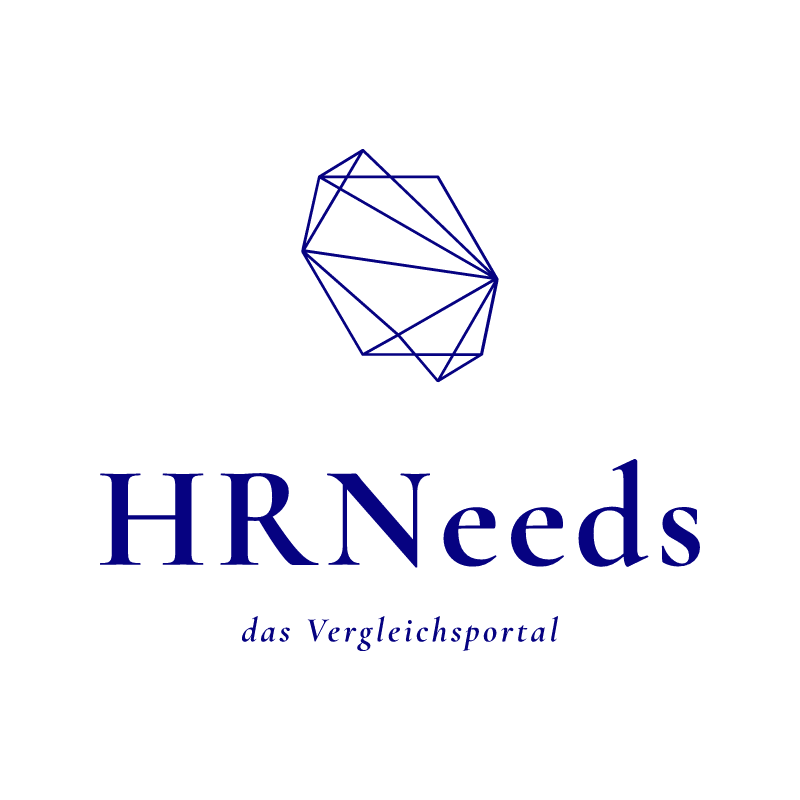Selection of a payroll system
Payroll accounting is a key issue for every company. Finding the perfect payroll software for your company is essential.
The initial situation
Payroll accounting systems and their integration into a company’s software landscape are standard. And yet there are many different reasons for changing the system. “One of the most common reasons is outdated payroll systems that can no longer meet legal requirements,” says Raphaele Rose, Corporate Lead Sales & Marketing at VEDA GmbHwhich specializes in HR solutions & services. For example, the increasingly extensive social security reporting requirements in the past were a sticking point for switching systems. Reduced performance of the remuneration systems due to growing employee numbers, more complex payroll structures or special reporting requirements as well as a lack of API connections to other systems would also lead to a change, Ms. Rose continues. Errors in payroll accounting or rising costs for the system in use can also be reasons for switching. Or, as Stefan Post, Managing Director of SP_Data GmbH & Co. KG, which also specializes in HR software, says: “We are in a constant state of change. A company is changing and processes are constantly being optimized. New requirements and the desire for greater efficiency mean that existing systems are being questioned.”What to look out for when searching for a suitable payroll accounting system?
“One point that sounds banal at first, but is ultimately decisive, is the question: Do I like the system, the interface?” says Claus Nielsen, operator of the software comparison portal HRNeeds. There is also the purely subjective assessment: Can I work with the system, is it structured according to my expectations? In addition, it is important to clarify whether the system covers all requirements and whether the solution can be docked onto other software systems. Because, according to Stefan Post from SP_Data: “Every area or department in the company should receive the right solution for its needs. Interfaces can be used to transfer data to neighboring systems. All-in-one solutions are often associated with compromises for the individual subject areas.”
The question of whether it is an open or closed system should therefore always be answered in advance. Especially if payroll accounting is to be linked with time recording, authorization control or other external payroll systems and other HR software tools.

The question of the location of data storage and processing also needs to be clarified. According to Raphaele Rose from VEDA, the trend is towards HR Cloud Solutions & Services, i.e. business process outsourcing (BPO). This involves outsourcing the entire payroll accounting business process. After all, an in-house infrastructure would mean increased costs and higher personnel expenses. However, Claus Nielsen also knows that there are companies that want to keep their own data in-house. Or who are looking for a kind of interim solution: The data is in the cloud, but is processed by their own employees.
The benefits of payroll accounting tailored to your needs
According to Stefan Post, payroll accounting is an area that is often underestimated – at least by non-experts: “There is an assumption that the software calculates the net from the gross with just a few clicks. It’s not more than one or two days’ work a month, according to a widespread assessment by outsiders.” But the reality is different: For example, laws, regulations and collective agreements must be observed and changes must be responded to. Raphaele Rose sees it the same way: “The daily task of dealing with and implementing the flood of constant changes in social security law and tax law is part of the master class and requires expert knowledge and specialists that are becoming increasingly difficult to find.”

A digital payroll system can provide efficient support here and make it easier to deal with payroll issues. “If the solution runs efficiently, quickly and reliably, then human resource management can look back on a satisfied workforce and expand its own additional services, such as the provision of payslips and registration certificates in the employee portal,” says Raphaele Rose. This statement once again emphasizes the importance of existing interfaces to third-party systems.
It is also clear that the impact of employee self services (ESS) should not be underestimated. As employees can maintain their master data themselves via personalized access, the HR department is relieved of numerous standard tasks.
With regard to payroll accounting, Stefan Post also mentions the reduction in manual effort and time savings as further advantages. He adds: “Useful information on changes to the law and ongoing updates keep payroll accountants up to date. In addition, digital software solutions have become even more important in times of working from home.”
These statements are reflected in the “HR Study 2020: This is the state of digitalization in HR work”, which was jointly published in 2020 by the Chair of Human Resources Management and Business Governance at Martin Luther University Halle-Wittenberg and forcont business technology gmbh. In the study, 44 percent of the companies surveyed stated that they had already automated their personnel remuneration. 37 percent were planning to take this step. When asked about the goals associated with digitalization, 75 percent cited an increase in process quality, 66 percent a reduction in the cost of HR processes and 62 percent an increase in employee satisfaction.
What can HRNeeds do to find the exact right payroll?
The market for digital tools is confusing and non-transparent. This makes it difficult to find the payroll accounting system that is tailored exactly to your needs so that the benefits listed actually materialize. The HRNeeds software comparison portal is a competent and reliable partner in this regard. HRNeeds compares company-specific requirements with over 60 software solutions and compiles a list of providers for its customers. A specially developed questionnaire is used to identify tailor-made software solutions based on individual customer requirements. A short telephone consultation between the HR experts from HRNeeds and the customer ensures that all issues are discussed and any outstanding points are clarified. Because: “Even if it looks like a solution might work, problems often lie in the details,” as HRNeeds operator Claus Nielsen knows. Once all questions have been clarified, the customer receives a free and non-binding list of the payroll accounting systems identified with a detailed summary and the respective advantages and disadvantages of the recommended solutions – including existing interfaces to software already in use. This process allows searchers to quickly reach a decision and avoid the otherwise necessary and time-consuming research effort.</span
In this way, it is possible for every company to provide its own HR staff with the best possible support in processing their complex payroll tasks with a digital solution.
What is important when implementing payroll accounting?
“Important stakeholders should already be involved in the selection process. This leads to greater acceptance among those involved because different perspectives and requirements are taken into account,” explains Stefan Post from SP_Data. These would include the IT department, the management, the works council and the future users. “A project manager should act as the central point of contact and coordinator for communication between the stakeholders and the software manufacturer,” adds Post. And project management with the right implementation strategy is needed.
But what could such a strategy look like? Raphaele Rose from VEDA is specific: “The first priority is good project management that covers all aspects of the transition from the old system to the new pay solution and clearly defines the project team and responsibilities, classifies them in terms of time and manages any delays and outstanding tasks in a timely manner.” It is also important to consider the issues of time and resources in advance. And to find the right time for the changeover and implementation.
The implementation of payroll accounting is not yet complete. The format in which the data is transferred from the old to the new system also needs to be clarified – both master data and payroll account data. Raphaele Rose knows: “Data transfers are always successful in terms of performance if the respective systems can deliver and receive good quality data. This must be checked in any case in order to minimize the manual effort that is inevitably associated with an implementation.” In this context, attention should also be paid to the data structures used in the respective HR solutions.
As a rule, software companies do not leave their customers alone during the implementation process. VEDA supports its customers with advice and programming at every step. The same applies to the go-live support. And can even manage and take over the entire implementation process on request.
SP_Data also supports companies very closely during software implementation. “The project is only completed together once the system has been installed and configured, the existing data has been migrated and training and test runs have been completed,” says Stefan Post. A precise action plan and a test phase are mandatory when implementing new software.
If everything runs smoothly and the test phases have been successfully completed, the software can be accepted. And you have taken a step towards a digitalized HR department.

This is how HRNeeds works:
- The company-specific requirements are compared with the solutions and a list of providers is drawn up.
- A brief telephone consultation between HRNeeds’ HR experts and the customer ensures that the customer’s requirements and wishes are discussed and any outstanding issues are clarified.
- The customer then receives a list of the identified software solutions free of charge and without obligation with a detailed summary of the recommended software solutions – including all information to help the customer make a decision.
- On request, HRNeeds can also help and advise you in the final decision-making process, so that you can be sure that the software solutions also meet your requirements.
According to our many years of experience, the error is often in the detail. Due to the complexity of the situation, many companies only realize during the implementation phase that the selected software solution can only partially cover the requirements or not at all. To prevent this, we offer HRNeeds users a special service: on request, you can also receive a brief consultation free of charge and without obligation, which provides lots of important tips and highlights pitfalls when making a selection.
Start your search for suitable payroll software today – HRNeeds will help you find the right solution for you!
But how should you proceed with all these imponderables that are difficult to recognize and the flood of questions?
The HRNeeds comparison portal provides transparency here.
The HR experts at HRNeeds have examined and analyzed over 70 HR software solutions in terms of their functions and requirements. They examined both complete software providers and specialist providers who have specialized in certain modules.
